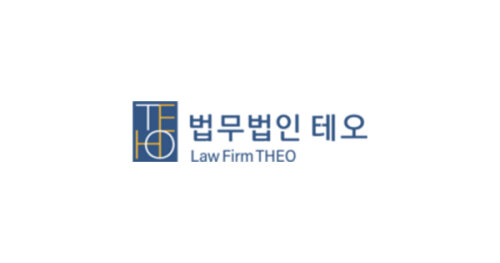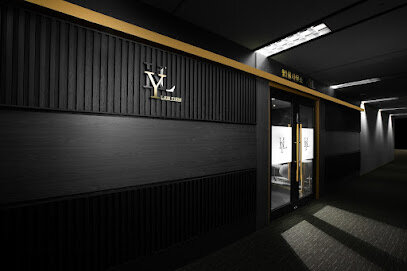Best Commercial Real Estate Lawyers in Yeonsu-gu
Share your needs with us, get contacted by law firms.
Free. Takes 2 min.
Free Guide to Hiring a Real Estate Lawyer
List of the best lawyers in Yeonsu-gu, South Korea
About Commercial Real Estate Law in Yeonsu-gu, South Korea
Yeonsu-gu is a district within Incheon that includes major commercial and mixed-use zones, including parts of the Songdo International Business District. Commercial real estate in Yeonsu-gu covers retail shops, office buildings, warehouses, hotels, restaurants, and mixed-use developments. Transactions, leasing, development and construction in this area are governed by a mix of national statutes, metropolitan and district regulations, and specific planning rules that apply to special economic zones like Songdo.
Because Yeonsu-gu includes modern planned developments and a free economic zone component, it attracts both domestic and foreign investors. That creates opportunities as well as legal complexity - particularly in zoning, building approvals, tax structuring, lease protections, environmental compliance and registration of title.
Why You May Need a Lawyer
Commercial real estate involves high value, long-term obligations and detailed regulatory requirements. A lawyer helps protect your rights and reduce risk. Common situations where people need legal assistance include:
- Buying or selling commercial property - to conduct due diligence, draft and negotiate purchase agreements, and handle closing and registration.
- Leasing commercial space - to draft, review and negotiate lease terms, deposit arrangements, renewal and termination clauses, and enforce tenant or landlord obligations under the Commercial Building Lease Protection Act.
- Development and construction - to obtain permits, negotiate construction and design contracts, manage contractor disputes and ensure compliance with the Building Act and safety codes.
- Zoning and planning issues - to navigate zoning changes, land-use permissions and appeals before municipal authorities.
- Financing and security interests - to structure loans, prepare mortgage or other security documents, and advise on priority of interests.
- Boundary, title or registration disputes - to resolve competing claims, correct registrations and represent clients in litigation or mediation.
- Tax planning and disputes - to advise on acquisition tax, registration tax, value added tax treatment, property tax and capital gains tax considerations.
Local Laws Overview
Commercial real estate in Yeonsu-gu is governed primarily by national law, with local implementation and additional rules imposed by Incheon Metropolitan City and Yeonsu-gu. Key legal areas to understand include:
- Land use and zoning - The National Land Planning and Utilization Act establishes zoning categories. Local master plans and district-level ordinances determine permitted uses, floor area ratios and building heights. In Songdo and other special zones, special plans and master developer agreements may apply.
- Building regulation and permits - The Building Act regulates building permits, construction standards, safety and inspections. Fire safety, accessibility and parking requirements must be met before occupancy is permitted.
- Lease protection - The Commercial Building Lease Protection Act protects commercial tenants in many lease relationships, including rules on registration of rights, security deposits, lease term protections and eviction procedures.
- Contract and civil law - The Civil Act governs contracts, obligations, warranty, and remedies for breach. Commercial contracts should reflect mandatory civil law provisions and, where applicable, consumer protection norms.
- Registration and title - Real estate ownership and security interests are perfected through registration at the relevant registry office under real estate registration laws. A title search is essential to confirm encumbrances, mortgages and easements.
- Taxation - Purchases and transfers may trigger acquisition tax, registration tax and possibly value added tax depending on the seller and type of property. Ongoing ownership carries property taxes, and disposition can trigger capital gains taxes. Local tax rules administered by the National Tax Service and municipal authorities are important to review.
- Special zone rules - Parts of Yeonsu-gu fall within the Incheon Free Economic Zone. Properties and businesses in these areas may be subject to special administrative regimes, incentives and additional regulatory requirements under free zone legislation and IFEZ policies.
Frequently Asked Questions
What steps should I take before buying commercial property in Yeonsu-gu?
Before buying, conduct comprehensive due diligence - review title and registration records, check for mortgages and liens, confirm zoning and permitted use, inspect building permits and safety certificates, review lease agreements if tenants are in place, obtain environmental assessments where relevant, and calculate all taxes and transfer costs. Have a lawyer draft or review the purchase agreement and assist with closing and registration at the registry office.
How are commercial leases different from residential leases in Korea?
Commercial leases are covered by the Commercial Building Lease Protection Act and have different protections and customs than residential leases. Key differences include landlord and tenant obligations on security deposits, renewal rights, transfer of rights, and procedures for eviction. Lease terms are more negotiable for commercial tenants, but certain protections for deposits and lease continuation may apply. Legal review is recommended for lease drafts and renewals.
What permits do I need to renovate or change the use of a commercial property?
Renovations that affect structure, fire safety, plumbing, electrical systems or change the building use typically require permits under the Building Act and local ordinances. A change of use may need approval from the district office and compliance with fire and safety regulations. If located in a special zone like Songdo, additional approvals or developer consents may be required. Always check with the local building department before beginning work.
How do I verify ownership and encumbrances on a property in Yeonsu-gu?
Ownership and encumbrances are verified through a title search at the local real estate registry office. The registry shows registered owners, mortgages, liens, easements and other registered rights. A lawyer or licensed real estate professional can obtain and interpret these records and advise on unregistered issues that could affect the acquisition.
What taxes and fees should I expect when purchasing commercial property?
Common costs include acquisition tax, registration tax, and potentially value added tax if the sale is subject to VAT. Sellers and buyers should also consider capital gains tax, local property tax, and transaction-related fees such as legal fees, agent commissions and appraisal costs. Exact rates depend on transaction value, property type and the parties involved. Consult a tax advisor or lawyer for an accurate estimate.
Can a landlord evict a commercial tenant quickly if they do not pay rent?
Eviction requires following legal procedures. For commercial tenants, landlords may have stronger contractual remedies than for residential tenants, but eviction still needs to comply with the law and any protections under the Commercial Building Lease Protection Act. Typically the landlord must provide notice, seek a court order if necessary, and cannot resort to self-help eviction methods. Legal counsel is important to ensure proper procedure.
What protections exist for foreign investors in Yeonsu-gu?
Foreign investors generally have the right to acquire and own commercial real estate in Korea subject to certain restrictions on land near military facilities and specific national security concerns. Investments in designated free economic zones like Songdo may benefit from incentives. Foreign investors should verify registration requirements, tax implications, and any sector-specific restrictions before proceeding, and consider working with an attorney experienced in foreign investment matters.
How can I resolve a dispute with a contractor or tenant?
Disputes can be handled through negotiation, mediation, arbitration or litigation. Many construction contracts include dispute resolution clauses specifying arbitration or expert determination. For lease disputes, mediation or court proceedings may be used. Consult a lawyer early to preserve evidence, comply with contract dispute timelines, and choose the most effective dispute resolution forum.
What is the process to register a mortgage or secure financing on commercial property?
MORTGAGES AND SECURITY INTERESTS must be registered at the real estate registry to be effective against third parties. Lenders typically require appraisal, title insurance or confirmation, and registration of mortgage or other security documents. A lawyer helps prepare the security documents, confirm priority of interests and ensure registration is correctly completed.
How long does a typical commercial real estate transaction take?
Transaction timelines vary with complexity. A straightforward purchase with no financing or tenant issues can take a few weeks to a few months - covering offer, due diligence, contract negotiations and registration. Projects with development approvals, finance arrangements, or complex due diligence can take several months to more than a year. Delays often arise from permit processing, title issues or financing contingencies.
Additional Resources
Useful agencies and organizations to consult or contact include:
- Yeonsu-gu Office - for district-level permits, local ordinances and administrative procedures.
- Incheon Metropolitan City Office - for metropolitan planning, building approvals and zoning information.
- Incheon Free Economic Zone Authority - for regulations and incentives applicable in Songdo and other free zone areas.
- Ministry of Land, Infrastructure and Transport - for national land use, building and planning laws.
- National Tax Service - for guidance on acquisition tax, VAT, property tax and capital gains tax.
- Local real estate registry office - to obtain title and registration records.
- Korea Appraisal Board and licensed appraisers - for professional property valuation.
- Korean Bar Association and local bar associations - to find qualified lawyers and confirm credentials.
Next Steps
If you need legal assistance with commercial real estate in Yeonsu-gu, consider this practical roadmap:
- Prepare basic information - property address, current title documents, any existing contracts, and your objective - purchase, lease, development or dispute resolution.
- Seek an initial consultation - contact a lawyer experienced in Korean commercial real estate. Ask about their experience in Yeonsu-gu, Songdo and free economic zone matters, and whether they handle cross-border clients if relevant.
- Conduct due diligence - work with your lawyer to obtain title searches, zoning confirmations, building permits, lease copies, tax statements and environmental reports.
- Negotiate and document - have the lawyer draft and review offers, purchase agreements, leases, financing documents and construction contracts to protect your interests.
- Plan for closing and registration - ensure funds, taxes and documents are ready for transfer and registration at the registry office to perfect ownership or security interests.
- Budget for ongoing compliance - plan for property taxes, safety inspections, permit renewals and any reporting required by local or free zone authorities.
- Keep records and maintain legal support - retain a local lawyer or law firm for ongoing matters, dispute readiness and to handle regulatory changes.
Commercial real estate transactions can be complex and context specific. Early legal involvement helps prevent costly mistakes, clarifies obligations and accelerates successful completion of your goals in Yeonsu-gu.
Lawzana helps you find the best lawyers and law firms in Yeonsu-gu through a curated and pre-screened list of qualified legal professionals. Our platform offers rankings and detailed profiles of attorneys and law firms, allowing you to compare based on practice areas, including Commercial Real Estate, experience, and client feedback.
Each profile includes a description of the firm's areas of practice, client reviews, team members and partners, year of establishment, spoken languages, office locations, contact information, social media presence, and any published articles or resources. Most firms on our platform speak English and are experienced in both local and international legal matters.
Get a quote from top-rated law firms in Yeonsu-gu, South Korea — quickly, securely, and without unnecessary hassle.
Disclaimer:
The information provided on this page is for general informational purposes only and does not constitute legal advice. While we strive to ensure the accuracy and relevance of the content, legal information may change over time, and interpretations of the law can vary. You should always consult with a qualified legal professional for advice specific to your situation.
We disclaim all liability for actions taken or not taken based on the content of this page. If you believe any information is incorrect or outdated, please contact us, and we will review and update it where appropriate.









